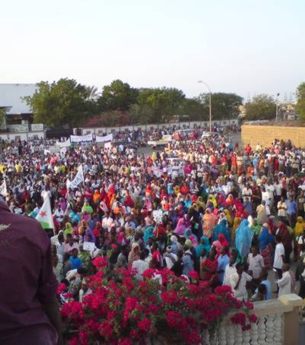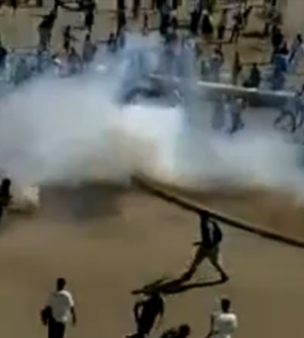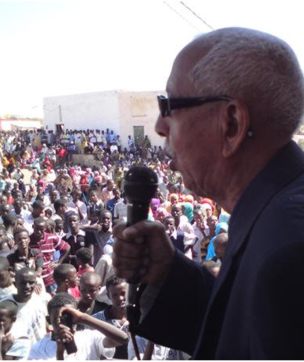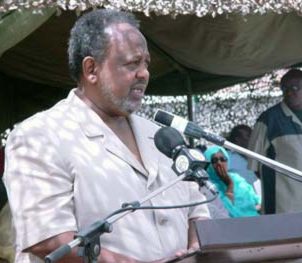|
Djibouti Politics Spark of rebellion reaches Djibouti
Students from the University of Djibouti have taken to the streets for three days now, originally to protest their grades and the small African Horn country's poor education system. But the protests have an anti-government and political undertone.
The student protests however do not come out of the blue. Already on Friday 29 January, the first display of popular discontent was made in the streets of central Djibouti City. After the Friday prayers, people seemingly spontaneously flocked in downtown Rue de Venise and started shouting anti-government slogans - obviously inspired by events in Egypt and neighbouring Yemen. The disorganised and spontaneous manifestation was peaceful and rather small, counting about 300 participants, also including opposition representatives. Several demands were heard, including calls for political reform, for the opposition to be given a real chance in the upcoming April elections and for job opportunities and socio-economic improvements. Socially, frustrations are great in Djibouti, where both education and job opportunities remain very limited for national citizens while large groups of educated foreigners are seen taking the most lucrative posts. Housing, social services, electricity supply and infrastructure are problems only getting graver. For many Djiboutians, daily life is only made endurable by chewing khat. But social probl
For the last two elections, the opposition has boycotted the polls, demanding a proportional representation in parliament and improved guarantees against fraud. The Union for a Democratic Change (UAD), uniting most key opposition parties, again has announced it will not file a candidate for the April elections without prior reforms. So far, the UAD had held a low profile in the sparse protests in Djibouti. But during the week, it has changed its position. Mohammed Warsama Ragueh - a judge said to be sympathetic to the Guelleh regime - announced his participation in the presidential race as an independent candidate. A two-person race would boost President Guelleh's legitimacy after his foreseen victory. UAD opposition leader Ismaël Guedi Hared therefore has stepped forward, throwing in his support for mass protests in Djibouti. The UAD has issued a statement, calling on "the Djiboutian people for a peaceful general demonstration" on Friday 18 February at 2 PM at Avenue Gamal Nasser in
The protest would, according to Mr Hared, be against the third term of President Guelleh - made possible through constitutional change last year - "overpriced food", insufficient social services, corruption and impunity for the political elite. The planned protests are a sharpening of language by the UAD, which had mobilised thousands of supporters to the streets on 1 January and 10 January rallies against the third term of President Guelleh. UAD leader Hared now is calling for an Egypt-like protest movement. With the UAD opposition party leading the protests, Djiboutians could be motivated to participate. The demands formulated by Mr Hared are similar to the grievances held by the majority. The opposition also could have a popular majority. In the last elections the UAD participated, in 2003, it got 37 percent of the votes - in Djibouti City even 45 percent. Since then, discontent with President Guelleh has only increased. But so far, the message of revolt has not reached the masses in Djibouti. It is still the students that lead the protest movement. 18 February will be the great test if Djiboutians are ready for political reform or not. By staff writers © afrol News - Create an e-mail alert for Djibouti news - Create an e-mail alert for Politics news
On the Afrol News front page now
|
front page
| news
| countries
| archive
| currencies
| news alerts login
| about afrol News
| contact
| advertise
| español
©
afrol News.
Reproducing or buying afrol News' articles.
You can contact us at mail@afrol.com











